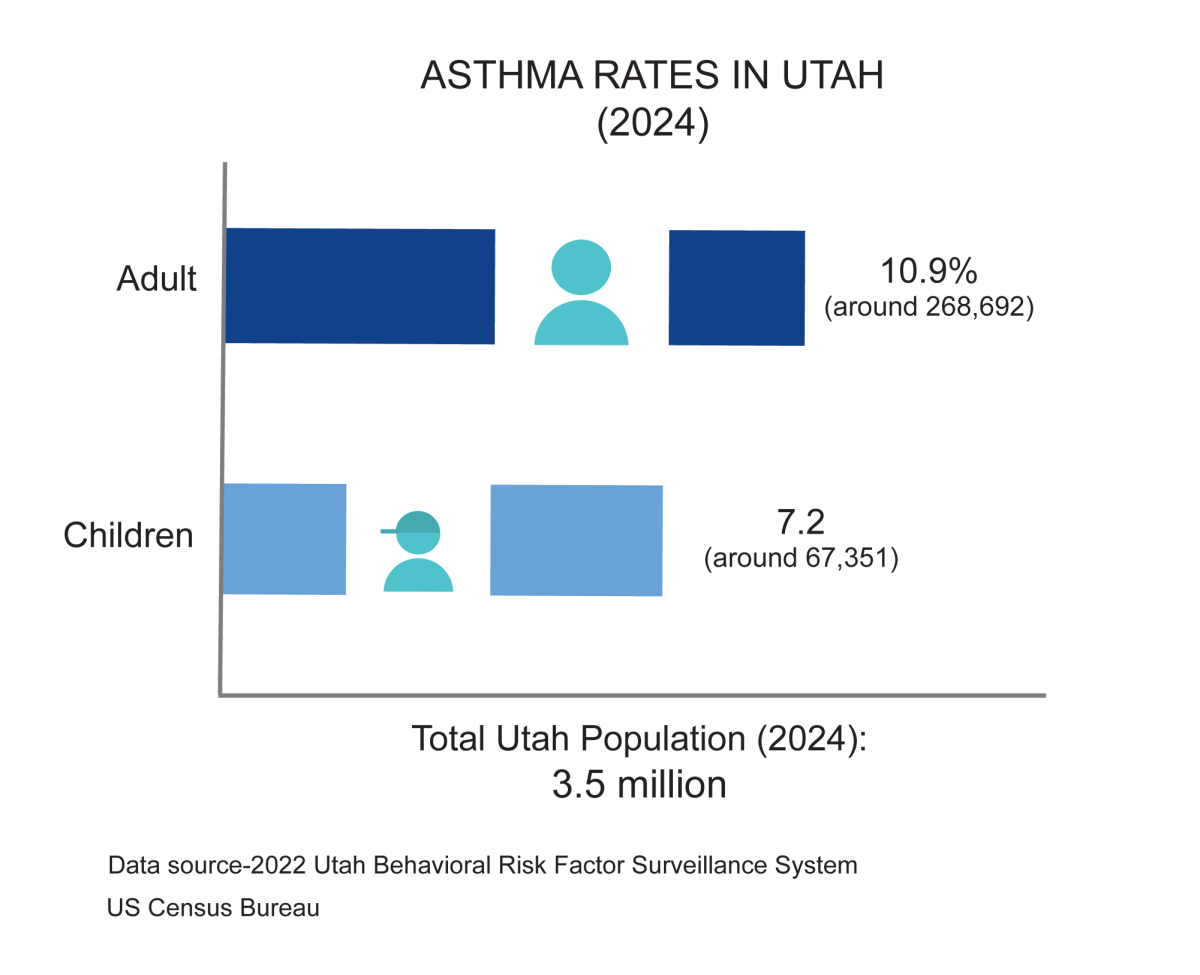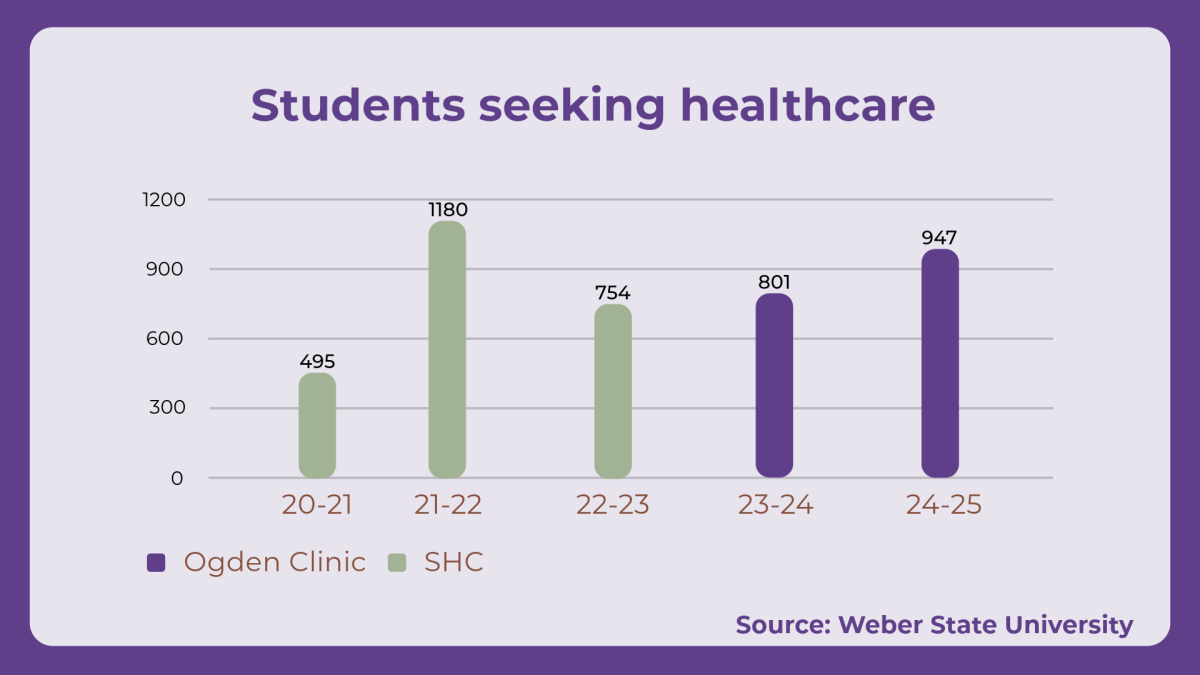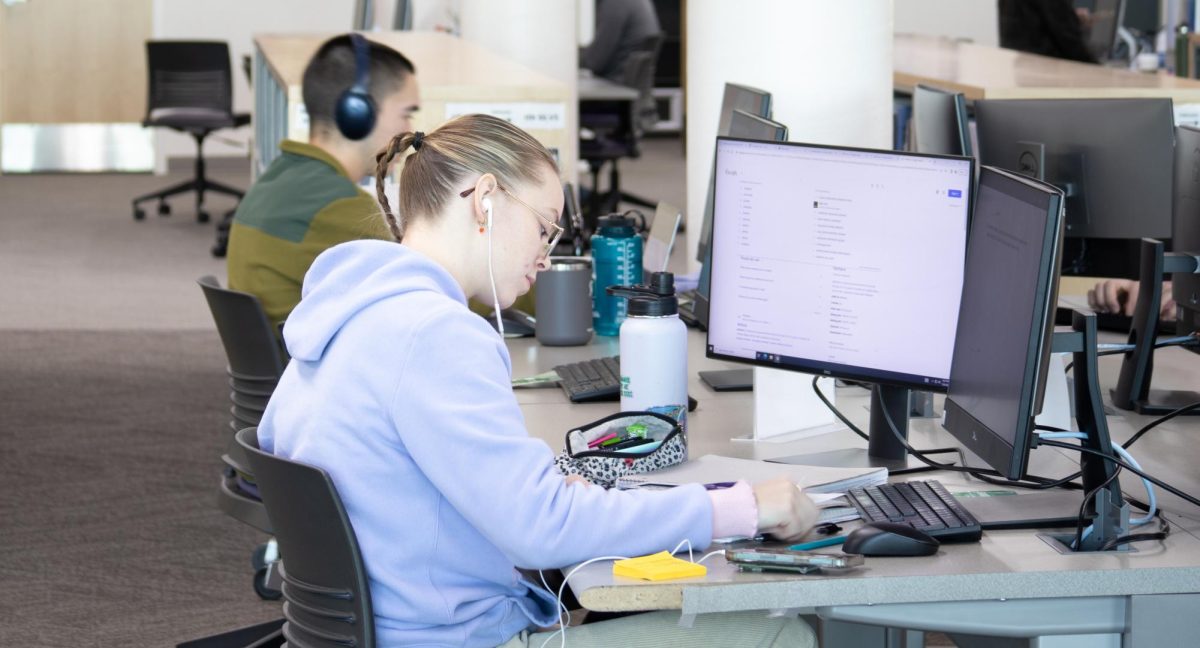
Seasonal affective disorder, or SAD, is a type of depression that affects people each year around the same time. The most common time those affected will feel this is during the fall and winter seasons; however, there are people who feel affected in the summer season.
“I have always felt affected by seasonal change,” Rachel Bunderson, a south Ogden resident, described. “A lot of times it makes me feel sick.”
According to Bunderson when she was 12 and moved to Houston she didn’t feel the affects of SAD because Houston doesn’t experience as much seasonal change. However, Bunderson noticed changes after moving to Utah.
“After moving to Utah when I was 19, I felt it a lot more when the seasons changed,” Bunderson said. “Particularly during the winter.”
According to Chris Chapman, a counselor at the WSU counseling center, the majority of people who develop SAD feel the affects in their late teens to early twenties.
“I would have all this motivation when it was sunny,” Bunderson shared. “But when it was rainy or snowy all that motivation would just go away.”
Feeling a lack of motivation is just one of the symptoms that one can feel with dealing with SAD. Other symptoms include, but are not limited to, difficulty concentrating, agitation and a loss of interest and enjoyment in activities or hobbies previously enjoyed.
While these symptoms are common, not everyone who develops SAD will be affected by all of the symptoms. Those dealing with SAD may experience any combination of these symptoms.
Chapman also commented that many people experience SAD and do not even know it because they end up attributing their depression to the winter weather.
“I think there is such a stigma around depression that people feel embarrassed feeling depressed or they feel that they should be able to fix it themselves,” Melisa Russel, a psychology major at WSU, said.
Light therapy is a common method to help those who are struggling with the symptoms of SAD. Light therapy involves having a full-spectrum artificial light being emitted from a light box that mimics natural outdoor light. This is thought to help cause chemical changes that occur in the brain which are tied to moods.
Bunderson explains that she copes with these symptoms by realizing that she will have tough times, but works on staying focused and accepting her reality.
According to Chapman, students that are struggling with or may be struggling with seasonal affective disorder or depression should consider getting support through the counseling center at the Weber State main campus for free. Chapman also shared that there is a nurse that can prescribe medication to help students, if needed.
For students wanting more information about where to find help, visit the Counseling and Psychological Services Center located in the Student Services building. They can also be reached by phone at 801-626-6406 or on their website.







